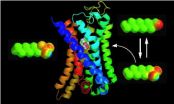(Press-News.org) DETROIT – More than 95 percent of patients treated in an Emergency Department mistake their emergency contact as the designated medical decision maker for end-of-life care, according to a new study by Henry Ford Hospital in Detroit.
The study is being presented Wednesday at the 20th International Congress on Palliative Care in Montreal.
Erin Zimny, M.D., a Henry Ford Emergency Medicine and Palliative Care physician and a study co-author, attributes the misunderstanding to health care practitioners routinely asking patients for their emergency contact information without explaining what that information really is and means.
As a result, practitioners are reinforcing the emergency contact as "having more importance" than the medical decision maker in an advance directive, Dr. Zimny says.
"What happens is a patient in respiratory distress or heart failure is too sick to tell us what they want, and when you look up their information in the medical record, most of the time nothing is documented," Dr. Zimny says. "So we end up doing things in the most invasive way to keep them alive."
In 1991, the Patient Self-Determination Act was enacted to protect patients from unnecessary suffering, family hardship and inappropriate use of unlimited resources and requires hospitals to inform each patient about their right to a natural death.
Despite the importance of advance directives for all adults that describe their preferences for end-of-life care, completion rates are low. A 2013 study in the American Journal of Public Health found that while more than 60 percent of adults 18 and older wanted their end-of-life wishes to be respected, only about a third of them had completed an advance directive.
Henry Ford researchers sought to determine whether there was a correlation between the role of an emergency contact and advance directive. At various entry points into the health care system, patients are repeatedly asked to provide emergency contact information even though the health care industry doesn't universally define what that is.
For its study, researchers surveyed 308 patients who were treated in Henry Ford's Emergency Department in Detroit between December 2012 and April 2013. Of that number, 34 patients had an advance directive but only half of them provided a copy of it to their primary care physician.
Highlights of the survey:
99 percent said their emergency contact should be able to come to the hospital if needed.
97 percent of patients said they wanted their emergency contact to notify important family members if they were sick and could not do so.
97 percent of patients said their emergency contact should know what type of care they would want if they could not voice it.
95 percent expected their emergency contact should be able to tell the medical team what their wishes were if they could not.
When asked why they chose their emergency contact:
80 percent of patients said the emergency contact was the best way to get in touch with them.
43 percent said they were the designated medical decision maker.
Dr. Zimny says health literacy, which is one reason cited for low advance directive completion rates, did not play a role in their study.
"We're using an antiquated vocabulary in medicine," she says. "We should be asking and educating patients about the importance of an advance directive instead of defaulting to the emergency contact world."
INFORMATION:
The study was funded by Henry Ford Hospital.
Study: Role of emergency contact is mistaken for advance directive
2014-09-11
ELSE PRESS RELEASES FROM THIS DATE:
Genomic analysis reveals that a high-risk leukemia subtype becomes more common with age
2014-09-11
More than one-quarter of young adults with the most common form of acute lymphoblastic leukemia (ALL) have a high-risk subtype with a poor prognosis and may benefit from drugs widely used to treat other types of leukemia that are more common in adults, according to multi-institutional research led by St. Jude Children's Research Hospital investigators. The study appears in the current issue of The New England Journal of Medicine.
ALL is the most common childhood cancer. The research focused on a subtype of ALL known as Philadelphia chromosome-like ALL (Ph-like ALL). In ...
Chemists discover way nose perceives common class of odors
2014-09-11
Biologists claim that humans can perceive and distinguish a trillion different odors, but little is known about the underlying chemical processes involved. Biochemists at The City College of New York have found an unexpected chemical strategy employed by the mammalian nose to detect chemicals known as aldehydes.
According to a team led by CCNY Associate Professor of Chemistry Kevin Ryan and Columbia biologist Stuart Firestein, some of the nose's many aldehyde receptors don't detect the aldehyde by its structure and shape directly. Rather, the aldehyde is recognized by ...
Small weight gain can raise blood pressure in healthy adults
2014-09-10
Gaining just five pounds can increase your blood pressure, according to a study presented at the American Heart Association's High Blood Pressure Research Scientific Sessions 2014.
Many people understand the health dangers of large amounts of extra body weight, but reasearchers in this study wanted to see the impact of a small weight gain of about five to 11 pounds.
"To our knowledge, for the first time, we showed that the blood pressure increase was specifically related to increases in abdominal visceral fat, which is the fat inside the abdomen," said Naima ...
Using plants to produce enzyme may provide treatment for high blood pressure in lungs
2014-09-10
Using plant leaves to produce and deliver a key enzyme may improve treatment for life-threatening high blood pressure in the lungs, according to a study presented at the American Heart Association's High Blood Pressure Research Scientific Sessions 2014.
"Current therapies for pulmonary hypertension don't cure the underlying disorder and the long-term prognosis is poor, even with treatment," said Vinayak Shenoy, Ph.D., the study's lead author and an assistant research scientist at the University of Florida in Gainesville. "There is an urgent need to discover potential ...
Restricting calories may improve sleep apnea, blood pressure in obese people
2014-09-10
— Restricting calories may improve obstructive sleep apnea and reduce high blood pressure in obese adults, according to a study presented at the American Heart Association's High Blood Pressure Research Scientific Sessions 2014.
People with sleep apnea may experience pauses in breathing five to 30 times per hour or more while sleeping. It prevents restful sleep and is associated with high blood pressure, arrhythmia (abnormal heart rhythm), stroke and heart failure.
In a 16-week ramdomized clinical trial, researchers analyzed 21 obese people 20-55 years old with a history ...
Can your blood type affect your memory?
2014-09-10
MINNEAPOLIS – People with blood type AB may be more likely to develop memory loss in later years than people with other blood types, according to a study published in the September 10, 2014, online issue of Neurology®, the medical journal of the American Academy of Neurology.
AB is the least common blood type, found in about 4 percent of the U.S. population. The study found that people with AB blood were 82 percent more likely to develop the thinking and memory problems that can lead to dementia than people with other blood types. Previous studies have shown that people ...
Angling chromium to let oxygen through
2014-09-10
RICHLAND, Wash. -- Researchers have been trying to increase the efficiency of solid oxide fuel cells by lowering the temperatures at which they run. More efficient fuel cells might gain wider use in vehicles or as quiet, pollution-free, neighborhood electricity generating stations. A serendipitous finding has resulted in a semiconducting material that could enable fuel cells to operate at temperatures two-thirds lower than current technology, scientists reported August 18 in Nature Communications.
In an attempt to create a metal oxide with the properties of metal, researchers ...
Association between sunshine and suicide examined in study
2014-09-10
Lower rates of suicide are associated with more daily sunshine in the prior 14 to 60 days.
Light interacts with brain serotonin systems and possibly influences serotonin-related behaviors. Those behaviors, such as mood and impulsiveness, can play a role in suicide.
The authors examined the relationship between suicide and the duration of sunshine after mathematically removing seasonal variations in sunshine and suicide numbers. They analyzed data on 69,462 officially confirmed suicides in Austria between January 1970 and May 2010. Hours of sunshine per day were ...
Study examines vitiligo, alopecia areata and chronic graft vs. host disease
2014-09-10
Vitiligo (depigmentation of the skin) and alopecia areata (AA, patchy or complete hair loss) in patients with chronic graft-vs-host disease (GvHD) following a stem cell transplant appear to be associated with having a female donor and the sex mismatch of a female donor and male recipient.
GvHD is a frequent complication of donor stem cell transplants because donor cells can attack the recipient's body and cause death and other illnesses. The skin is the most commonly affected organ. The underlying biology of chronic GvHD has not been fully explained. The authors ...
'Green wave' explains migratory bird routes
2014-09-10
Ithaca, N.Y.—Migratory songbirds enjoy the best of both worlds—food-rich summers and balmy winters—but they pay for it with a tough commute. Their twice-a-year migrations span thousands of miles and are the most dangerous, physically demanding parts of their year.
Surprisingly, for many North American species the best route between summer and winter homes is not a straight line, according to new research published in the Proceedings of the Royal Society B. In spring, the study shows, birds follow areas of new plant growth—a so-called "green wave" of new leaves and numerous ...


